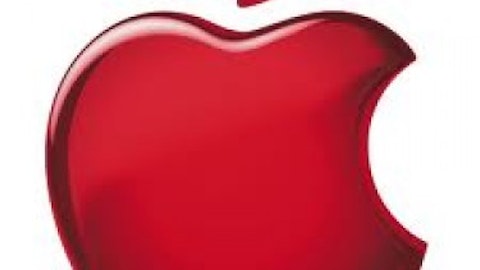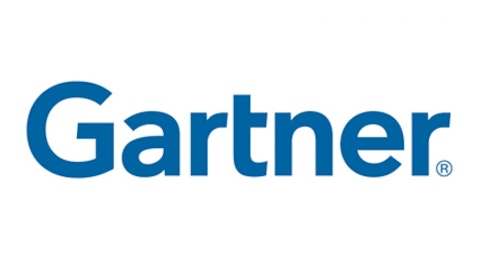A year ago the news about Apple Inc. (NASDAQ:AAPL) was how soon would the tech giant hit the mythical $1,000 a share mark and what would be the company’s next product that would revolutionize the industry. Apple had more cash than the government and what would it possibly do with that cash.
On present day
On this date, things have changed a lot for Apple; its market share, its margins, and customer loyalty seem to be fading away. Market researcher, IDC’s report on Apple makes it clearly evident that it’ market share, for both smartphones and tablets, is shrinking. From first quarter 2012 to the same period in 2013, the smartphone market share of Apple fell from 23% to 17.3%. During the same period, Apple also lost a considerable market for its tablet, as its share shrunk from 58.1% to 39.6%.
The cause
The loss of market share has two causes. First, the loyalty of customers towards Apple Inc. (NASDAQ:AAPL) has been declining, as they have been prioritizing value for money more than the brand name. This is evident from the fact that about half of the sales of the wireless carrier are coming from the cheaper and comparatively outdated iPhone 4 and iPhone 4S models rather than the iPhone 5.
Second, competition is taking a bite out of Apple as Samsung‘s dominance, in the smartphone and tablet markets is rising. According to IDC Samsung’s market share for smartphones and tablets has increased from 28.8% to 32.7% and 11.3% to 17.9% respectively from Q1 2012 to Q1 2013.
What about the cash pile?
I use the word ‘pile’ after cash because the cash is only sitting in the balance sheet without adding any actual value to its investors. Out of Apple’s $388 billion market capitalization, $145 billion stands in cash and cash equivalents representing about 37% of the company’s value. As this cash is invested mainly in long-term marketable and mortgage-backed securities yielding a return of less than 1% over a period of last 3 years, this reflects highly inefficient cash management considering that Apple Inc. (NASDAQ:AAPL) has a ROE of 33%.
The company does plan to return cash to its investors in the form of dividend and share repurchase. Apple Inc. (NASDAQ:AAPL), in its last earnings release mentioned that it plans to return $100 billion to shareholders by 2015. It is no doubt a shrewd move, but as the company has a handsome generation of free cash flow, the same problem of inefficient cash management will be cropping up again.
Is it same for all?
Like Apple’s iPhone 5, sales of Samsung’s latest flagship smartphone, the Galaxy S4, have failed to meet the company’s expectations. The Galaxy S4 had a solid launch, but its demand started falling once the tech reviewers decided that it isn’t a major upgrade compared to the S3. If reviews of any phone are not very welcoming then their sales are expected to fall as the high-end smartphone market nears saturation.
A major differentiating factor between Apple Inc. (NASDAQ:AAPL) and Samsung is that the former concentrates on high end products only, which sidelines a very dominant market; the developing countries’ middle class population. This is where Samsung’s array of phones at various price points gives it an edge over Apple and a strong foothold in emerging countries where people are gradually switching over from feature phones to smartphones. Samsung’s strategy is clear as it is working by all means to dominate this segment of the market, and or this very reason; it is coming up with Mini versions of its flagship phones too.
A company with nothing to lose
Research In Motion Ltd (NASDAQ:BBRY)’s failure to innovate with the changing need of time had put it in a back seat. The company realized its mistakes and in the beginning of this year came up with a new operating system – the BB10 and a revolutionary touch phone – the Z10 which were both well received by the market. Further, BlackBerry’s Q10, its QWERTY smartphone, was launched recently and has also been appreciated. The Q10 stands apart as after a long time a non-touch smart phone has come up in the market.
BlackBerry’s enterprise customers and phone security make it stand apart. If the company keeps its focus on security, it will gain more and more government and enterprise employees as its customers and that should add stability to its top-line.
Financially too the company appears very stable. Currently, its net assets are worth $9.5 billion, which exceeds even its market cap of $7.4 billion. Further with a net working capital of $3.4 billion, its current liabilities are also well financed. The company’s balance sheet is free from debt, so there aren’t any major cash outflows in the future. As long as the company is able to keep the current momentum going and keep on adding new products, it should add value to investors’ portfolio.
Final words
In the technology industry, being innovative and moving ahead of competition is the key for success. Samsung has well understood the changing needs of the market. It realizes that future growth will be coming from low priced phones and emerging markets and is thus effectively focusing on them. Samsung is a good bet with a long-term perspective.
The article This Mythical Stock Seems to be in Troubled Water originally appeared on Fool.com and is written by tarun bachhawat.
tarun bachhawat has no position in any stocks mentioned. The Motley Fool recommends Apple. The Motley Fool owns shares of Apple. tarun is a member of The Motley Fool Blog Network — entries represent the personal opinion of the blogger and are not formally edited.
Copyright © 1995 – 2013 The Motley Fool, LLC. All rights reserved. The Motley Fool has a disclosure policy.






